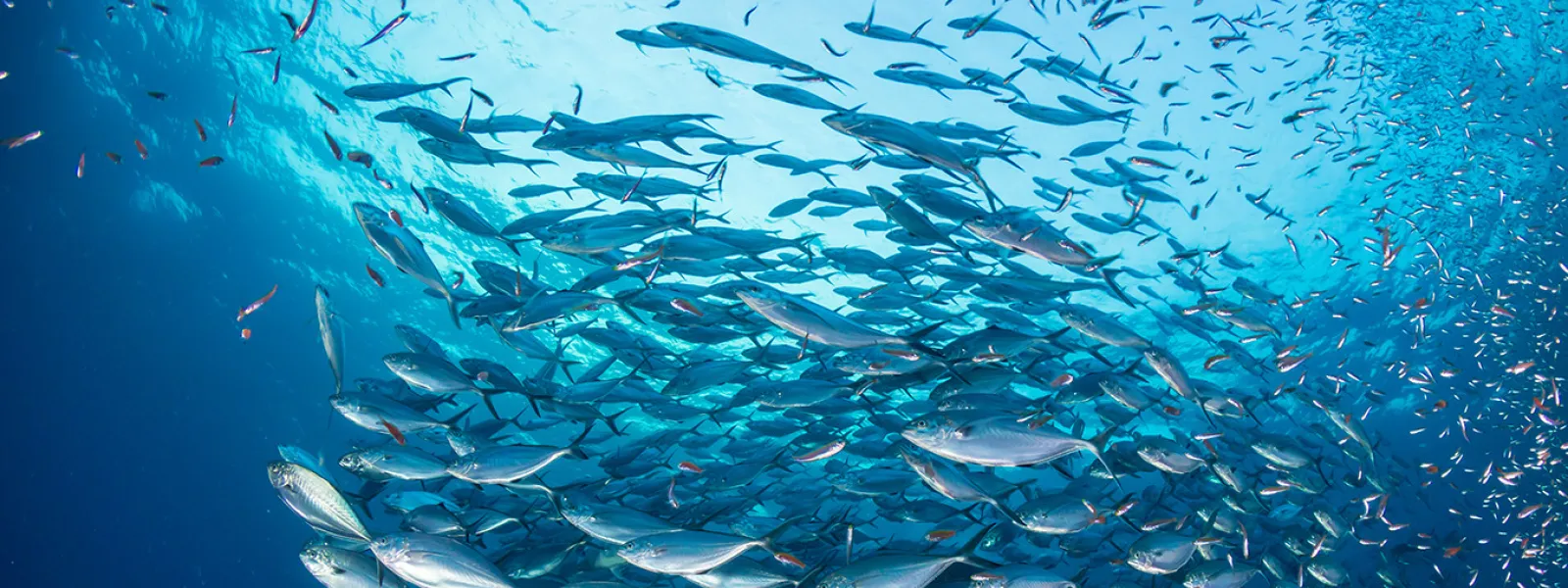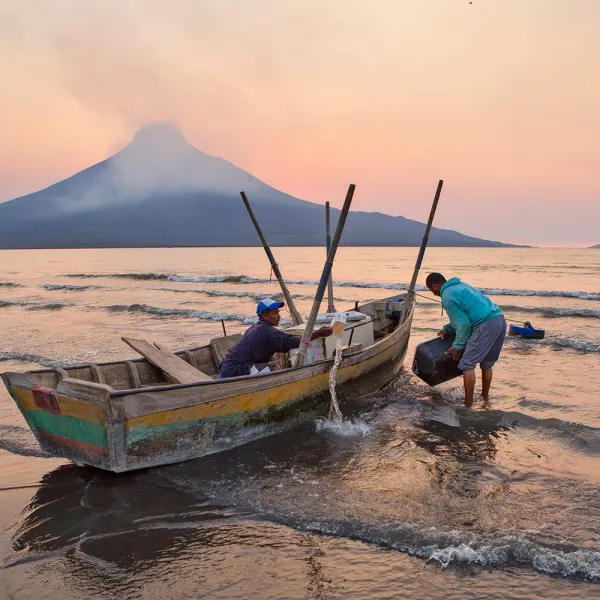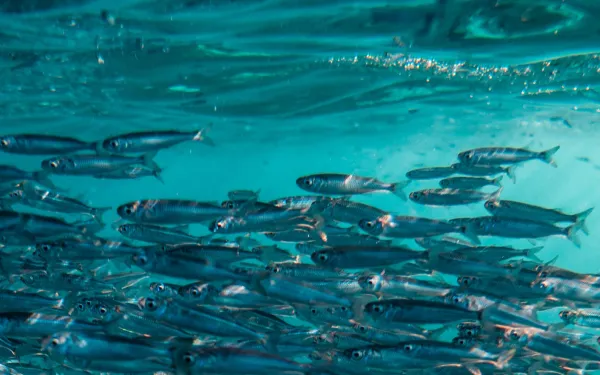
Project
ShutterstockTowards an end to subsidies that promote overfishing
Overfishing is one of the main problems for the health of our ocean. And the provision of negative subsidies to the fishing sector is one of the fundamental causes of overfishing.
Fishing subsidies are financial contributions, direct or indirect, that public entities grant to the industry.
Depending on their impacts, they can be beneficial when they promote the growth of fish stocks through conservation and fishery resource management tools. And they are considered negative or detrimental when they promote overfishing with support for, for example, increasing the catch capacity of a fishing fleet.
It is estimated that every year, governments spend approximately 22 billion dollars in negative subsidies to compensate costs for fuel, fishing gear and vessel improvements, among others.
Recent data show that, as a result of this support, 63% of fish stocks worldwide must be rebuilt and 34% are fished at "biologically unsustainable" levels.
Although negotiations on fisheries subsidies, within the framework of the World Trade Organization, officially began in 2001, it was not until the 2017 WTO Ministerial Conference that countries committed to taking action to reach an agreement.
This finally happened in June 2022, when member countries of the World Trade Organization reached, after more than two decades, a binding agreement to curb some harmful fisheries subsidies. It represents a fundamental step toward achieving the effective management of our fisheries resources, as well as toward ensuring global food security and the livelihoods of coastal communities.
The agreement reached at the 12th WTO Ministerial Conference provides for the creation of a global framework to reduce subsidies for illegal, unreported and unregulated fishing; subsidies for fishing overexploited stocks; and subsidies for vessels fishing on the unregulated high seas. It also includes measures aimed at greater transparency and accountability in the way governments support their fisheries sector.
The countries agreed to continue negotiating rules to curb other harmful subsidies, such as those that promote fishing in other countries' waters, overfishing and the overcapacity of a fleet to catch more fish than is sustainable.
If we want to have abundant and healthy fishery resources, it is time to change the way we have conceived fishing until now. We must focus our efforts on creating models of fishery use that allow for long-term conservation.
Partners:

Latest News

Our responsibility in the conservation of fisheries resources
It’s increasingly common to hear people say that they identify themselves as flexitarian, or semi-vegetarian. Being flexitarian means a person eats mostly a vegetarian diet, but occasionally consumes animal products like meat, poultry, seafood and fish. There are also pescetarians, or pesco-vegetarians, who only consume different varieties of fish and seafood As with any consumption habit, it is important to reflect on its environmental impact. While the current pattern of meat consumption is not sustainable, largely due to its impacts on the climate, the situation for fish consumption is no more encouraging. According to the biennial report of the Food and Agriculture Organization (FAO), for more than 60 years global fish consumption has increased at a rate considerably higher than the growth of the world population. In addition, it is estimated that more than 30 percent of the world's fish stocks are overexploited and 60 percent are overfished. The continued increase in overfishing has consequences not only for biodiversity and ecosystem functioning, but also causes a decrease in fish production, with negative economic and social repercussions. Why fish consumption is increasing There are many reasons why people change their eating habits. They are often linked to health, weight and ethical considerations that reflect an ideology of respect for animals and environmental sustainability related to the reduction of red meat consumption. In recent years, fish-rich diets have been strongly promoted, mainly for their nutritional benefits. The nutritional content of fish varies according to factors such as species, age, environment, diet and even the time of capture. However, in general terms, fish are characterized by being sources of vitamins and proteins with high biological value. Oily or fatty fish—among them salmon, sardines and tuna—are usually exceptionally rich in Omega-3 and in minerals such as potassium, magnesium and phosphorus. Nutritionally, it’s advisable to consume them two to three times a week since rational consumption of fish helps regulate blood pressure, and reduce coronary risk and triglyceride levels. Although it’s necessary to eat in a healthy and balanced way to have a full life, it is also crucial to take into account the origin of the food we consume and to question where it comes from, and under what conditions it was caught or processed. An example of the relevance of answering these questions is the case of salmon, whose nutritional value lies in wild species and not in farm-raised ones, which are fed with an excessive amount of antibiotics. Overfishing, incentives and consequences According to the FAO, about 90 percent of marine fish stocks worldwide are fully exploited, overfished or depleted. Negative fisheries subsidies account for much of this problem. By increasing fishing capacity, these subsidies provide short-term benefits, but threaten the long-term sustainability of ecosystems and coastal communities. Worldwide, negative subsidies represent an investment of $22 billion each year. The most widely used are those for the purchase of fuel and the modernization of vessels to increase catches. Ecologically, these incentives reduce fish stocks and hinder their recovery. They destroy marine habitats and exacerbate overfishing. Given that nearly 60 million people work directly in the world's fisheries, it is vital that fish stocks be allowed to regenerate properly, thus ensuring the continued livelihoods of fishing communities. The responsible use of fishery and aquaculture resources must be recognized as a priority for global food security and nutrition, as well as for local development opportunities. The promotion and adoption of responsible fishing practices, from catch to consumption, is a joint effort in which consumers play a fundamental role. How to eat fish responsibly Sustainable fishing allows fish stocks to reproduce adequately and continuously, keeping them healthy and productive. While this task necessitates the active involvement of the fishing sector and government authorities, as consumers we also have a responsibility to promote sustainability through our purchasing decisions. Here are some simple tips fish eaters can implement in their daily lives: Verify the origin and size of the fish or seafood: Learn aspects such as the origin and method of capture, in addition to the size of the piece, which determines whether it reached sufficient maturity. Diversify consumption habits: Consume fish and seafood according to seasonality, a phenomenon related to the times of reproduction and movement of species, which are highly dependent on characteristics such as water temperature. Consuming seasonal fish and seafood allows for proper reproduction and recovery of species, ensuring greater balance and helping to avoid overfishing. Buy from authorized sites: Know if the place of sale actually complies with sustainability and traceability criteria for the products it sells. Traceability is the set of measures and procedures that make it possible to follow the trail of a fishery product from its capture to its final sale. Check labels: Where possible, choose products with certifications in sustainable fishing and marketing practices, such as the MSC (Marine Stewardship Council) seal or the Environmental Responsibility Standard for Fish Marketing, granted by Marviva in Costa Rica, Panama and Colombia. If we as a society allow for the gradual recovery of our ocean, we will be making a positive contribution to food security, the economy, the wellbeing of coastal communities, and future generations.
Read more
Member countries of the World Trade Organization must reach an agreement on fisheries subsidies
We regret that the World Trade Organization (WTO) Ministerial Conference, held today in Geneva, failed to reach an agreement on fisheries subsidies, an urgent measure to achieve effective management of our fisheries resources, as well as to ensure global food security and the livelihoods of coastal communities. At the same time, we recognize that the negotiations are at an advanced stage and that we finally have a draft text. We wish to highlight the commitment and participation of Latin American delegations including Argentina, Chile, Colombia, Costa Rica, Guatemala, Mexico, Panama, Peru and Uruguay. We urge all WTO member countries to assume the great responsibility of reaching an agreement soon. After two decades of negotiations, the deadlines for completing the negotiations and reaching an agreement have been repeatedly missed. Although negotiations officially began in 2001, it was not until the 2017 Ministerial Conference that countries committed to take action and reach an agreement at the next conference, which was to take place in December 2020, but was suspended due to the pandemic. This commitment also responds to the fulfillment of target 14.6 of the United Nations Sustainable Development Goals. This target establishes that by 2020 "certain forms of fisheries subsidies which contribute to overcapacity and overfishing" should be prohibited, and aims to "eliminate subsidies that contribute to illegal, unreported and unregulated fishing and refrain from introducing new such subsidies, recognizing that appropriate and effective special and differential treatment for developing and least developed countries should be an integral part of the World Trade Organization fisheries subsidies negotiation." According to recent estimates, governments spend US$35 billion each year to support their fisheries sectors, of which US$22 billion represent negative subsidies, which promote overfishing. That practice results in alarming data, including that 63 percent of global fish stocks need to be rebuilt and that, according to a 2020 FAO report, 34 percent of them are fished at "biologically unsustainable" levels. While the agreement is being finalized, more needs to be done to ensure the sustainability of fish stocks. We urge WTO member countries to define without further delay commitments in this regard at the national and regional levels. For our part, AIDA attorneys will continue to work hand-in-hand with governments to reach an ambitious agreement. It is imperative that said agreement adopt solid rules, eliminate the possibility of creating legal loopholes, and seize the opportunity to establish ocean policies aimed at achieving greater sustainability and guaranteeing the satisfaction of the needs of current and future generations, as well as the conservation of our marine resources. press contact Victor Quintanilla (Mexico), [email protected], +525570522107
Read more